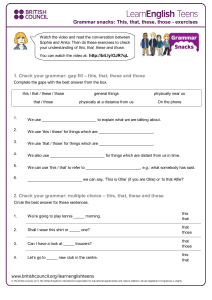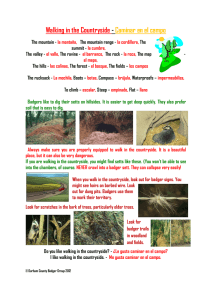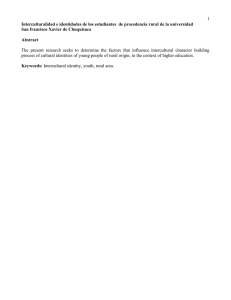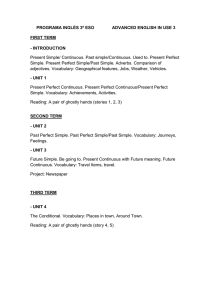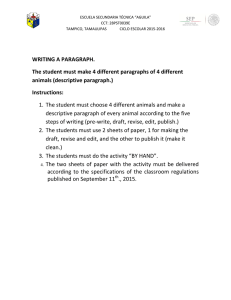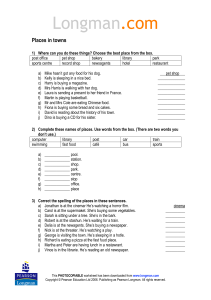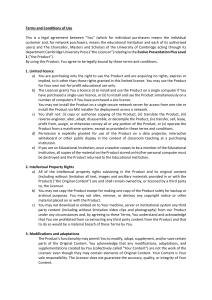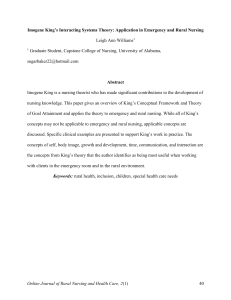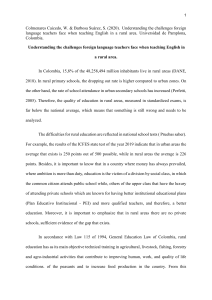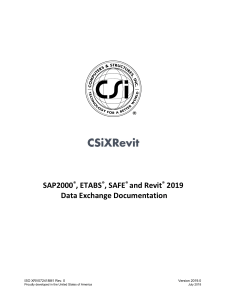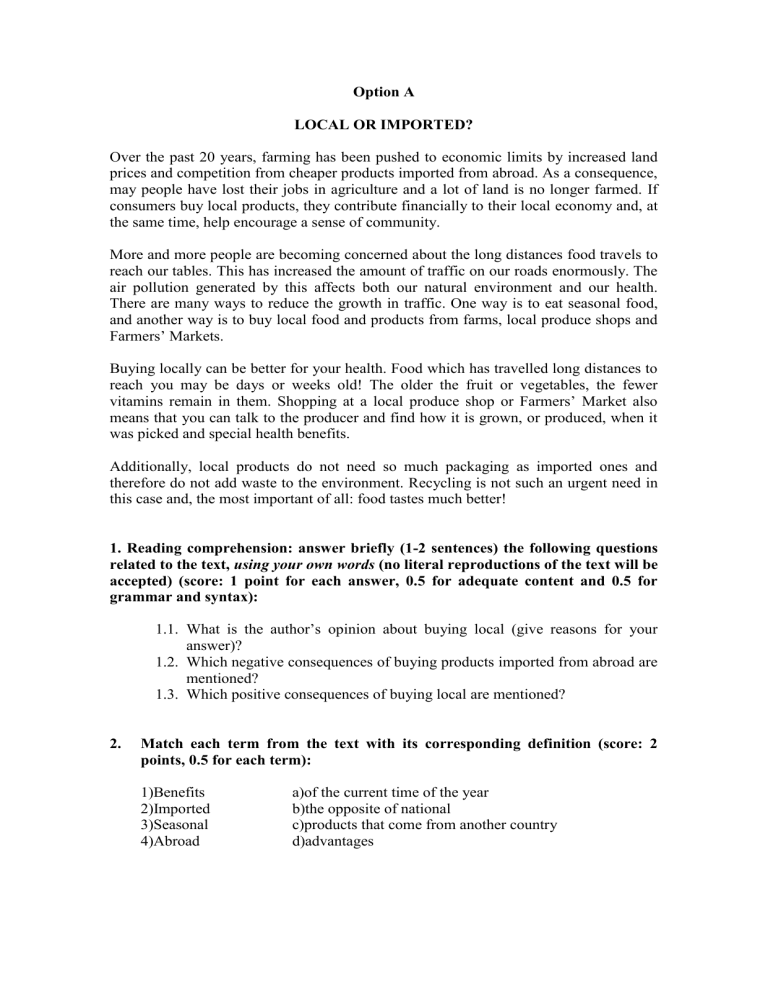
Option A LOCAL OR IMPORTED? Over the past 20 years, farming has been pushed to economic limits by increased land prices and competition from cheaper products imported from abroad. As a consequence, may people have lost their jobs in agriculture and a lot of land is no longer farmed. If consumers buy local products, they contribute financially to their local economy and, at the same time, help encourage a sense of community. More and more people are becoming concerned about the long distances food travels to reach our tables. This has increased the amount of traffic on our roads enormously. The air pollution generated by this affects both our natural environment and our health. There are many ways to reduce the growth in traffic. One way is to eat seasonal food, and another way is to buy local food and products from farms, local produce shops and Farmers’ Markets. Buying locally can be better for your health. Food which has travelled long distances to reach you may be days or weeks old! The older the fruit or vegetables, the fewer vitamins remain in them. Shopping at a local produce shop or Farmers’ Market also means that you can talk to the producer and find how it is grown, or produced, when it was picked and special health benefits. Additionally, local products do not need so much packaging as imported ones and therefore do not add waste to the environment. Recycling is not such an urgent need in this case and, the most important of all: food tastes much better! 1. Reading comprehension: answer briefly (1-2 sentences) the following questions related to the text, using your own words (no literal reproductions of the text will be accepted) (score: 1 point for each answer, 0.5 for adequate content and 0.5 for grammar and syntax): 1.1. What is the author’s opinion about buying local (give reasons for your answer)? 1.2. Which negative consequences of buying products imported from abroad are mentioned? 1.3. Which positive consequences of buying local are mentioned? 2. Match each term from the text with its corresponding definition (score: 2 points, 0.5 for each term): 1)Benefits 2)Imported 3)Seasonal 4)Abroad a)of the current time of the year b)the opposite of national c)products that come from another country d)advantages 3. Answer the following questions related to grammar and use of English (score: 2 points, 0.5 for each correct answer): 3.1. Look for two connectors in the text (i.e., expressions that indicate paragraph transition) meaning: a) consequence and b) addition. 3.2. Translate the following sentence from the text: The older the fruit or vegetables, the fewer vitamins remain in them. 3.3. Give the verbs corresponding to these nouns: a) growth and b) pollution. 3.4. Rewrite this sentence in indirect speech, making the necessary changes in verbal tenses: If consumers buy local products, they contribute financially to their local economy. The author said that… 4. Write a paragraph (between 50-80 words) on the following topic (score: 3 points, 1 for content, 1 for grammar and 1 for cohesion): My own choice: do I buy local or imported? Why? Notice: A maximum of 1 extra point may be awarded by exemplary external appearance. Option B LIFE IN THE BRITISH COUNTRYSIDE The population of our countryside grows by more than 100.000 every year. Most of these people are wealthy. Average income is higher in rural areas than urban, unemployment is lower, educational standards are higher, there are more businesses per head of the population and it is easier to get around by car. But this popularity can hide problems. The socially excluded in rural areas are relatively spread out and often they do not appear in official figures. Frequently they are selfreliant people who do not like to ask for help and live further away from close family members. House prices are growing rapidly, driven by commuters, second homers and those who work in new rural businesses. The quantity of lower-priced homes tends to be tiny or non-existent. People on lower salaries have no chance of living anywhere near where they want. However, many country dwellers have made money from the rising value of their houses. There’s more pressure on road space, too. Traffic levels are growing quickly as more employers need to get their workers in and out. More homes and businesses means a demand for more of the hard stuff –tarmac and concrete or, in other words, roads, and less of the green stuff –fields and open space, exactly the elements that attracted people in the first place. In short, rural Britain is becoming more urban. 1. Reading comprehension: answer briefly (1-2 sentences) the following questions related to the text, using your own words (no literal reproductions of the text will be accepted) (score: 1 point for each answer, 0.5 for adequate content and 0.5 for grammar and syntax): 1.1. What does the text say about living in the countryside? 1.2. Which problems are arising from the choice to live in the countryside? 1.3.Which is the socio-economic profile of the people who move to the country? 2. Match each term from the text with its corresponding definition (score: 2 points, 0.5 for each term): 1)Commuters 2)Spread out 3)Tarmac 4)Country dwellers a)the material used to make road surfaces b)people who live in the country c)not together; in lots of different places d)people who travel long distances to work each day 3. Answer the following questions related to grammar and use of English (score: 2 points, 0.5 for each correct answer): 3.1. Find, in the first paragraph, three examples of adjectives in the comparative form, and write them here. 3.2. Put this sentence from the text in the passive form: However, many country dwellers have made money from the rising value of their houses. 3.3. Write a question for this sentence: The population of our countryside grows by more than 100.000 every year. 3.4. Rewrite the verbs from these two sentences in the past continuous tense: a) House prices are growing rapidly, b) Rural Britain is becoming more urban. 4. Write a paragraph (between 50-80 words) on the following topic (score: 3 points, 1 for content, 1 for grammar and 1 for cohesion): My own choice: living in the city or in the countryside? Why? Notice: A maximum of 1 extra point may be awarded by exemplary external appearance.
